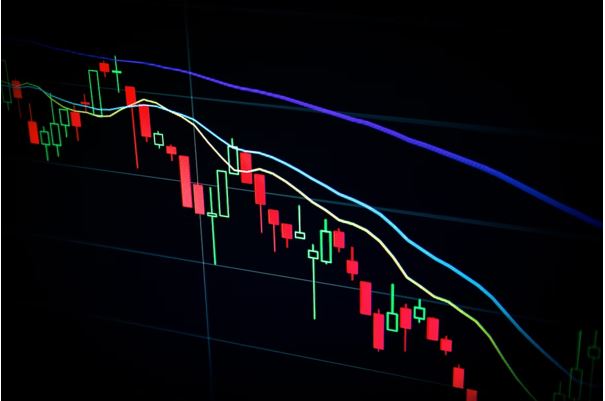CFD Trading: A Complete Guide on Where to Trade
New tools and tactics are provided to traders as the trading world expands and evolves. Contract for Difference (CFD) trading is one such relatively recent technology. In this post, we will look at the world of CFD trading and the nations in which a CFD trader may operate.
CFD Trading in a Nutshell
What is CFD? This is a Contract For Difference, which involves the participation of two parties – selling and, accordingly, buying. If the difference between the price and the quote at the conclusion of the contract is positive, then it is paid by the seller, and if vice versa, then the buyer. The main feature of CFD is that it does not require the player to own the selected asset, allowing you to earn on changes in its price. The note is that at present the list of available assets of this type of trade is quite large and continues to be replenished with constancy, which can be envied.
CFD traders: who are they?
Since only market makers in listed firms were permitted to sell securities short initially, they were the main users of CFDs. As a result, CFDs were adopted by institutional traders as ‘over-the-counter products, which suggests that large corporations were the primary users of this financial instrument. Hedge fund traders, individual clients, and the retail market started to employ this trading strategy as well, though, as CFD trading gained popularity. Today, CFD trading is profitable for institutions, small fund managers, and individual investors, making it a desirable choice for a variety of traders. So where might they apply their knowledge?
CFD-Friendly Countries Where Trading is Not Forbidden
CFD trading is permitted and available in many major trading nations across the globe. Some of these countries include:
Germany and Belgium, United Kingdom, Singapore, Australia, Canada, Hong Kong, New Zealand, Italy and Spain, France, etc.
It is crucial to remember that, while CFD trading is not legal in the United States owing to SEC rules on OTC financial instruments, non-residents can deal with them. At the same time, CFD trading is quite developed in Germany, despite the fact that it is regulated by the Federal Financial Supervisory Authority (BaFin), which has one of the strictest retail market laws in the world. The regulator has banned the marketing, distribution, and sale of CFDs subject to additional payments and has set rules regarding maximum allowed leverage, negative balance protection, restrictions on incentives offered for trading CFDs, and risk warning requirements.
There are risks associated with, as the locals say CFD Handel risikos, however, they consider CFD trading to be one of the most profitable. As the popularity of CFD trading continues to grow, there is a possibility of expansion into new markets.
Why do people choose CFD trading?
There are several main reasons why investors return to CFD trading again and again.
1. Low entry barrier
The low entry level of CFD trading is its key benefit. No significant quantity of money must be deposited in order to complete this transaction. Additionally, margin lending is used in CFD trading, allowing you to continually raise the deposit and, consequently, the profit.
2. Diversity
CFD trading opens up great opportunities for you. Moreover, there are more of them than in other types of exchange trading. When you start working in this direction, you get access to the DMA market and can trade from basic orders around the world. The range of markets is striking in its breadth: it can be stocks and commodities, options, the financial market, and other assets. Investors are happy to open a demo account, or as they say, Demokonto, to learn all the basics of CFD trading.
3. Speed
Another difference is the speed of CFD transactions. However, at the moment it all depends on the specific conditions offered by your broker. On some platforms, trading is very fast, and some operations are performed in one click. A good platform always shows real prices. There are special systems with the help of which transactions are carried out automatically.
4. Credit leverage
Let’s also think about leverage, which allows a trader to trade with a small part of the capital. As a result, you can spend your own funds on multi-asset CFDs. It is best to allocate your capital to different contracts. Trade that contributes to the implementation of your goals
What About Regulation?
Although there are many benefits to CFD trading, it is important to understand the rules that apply to this type of financial instrument. The industry is frequently unregulated, which has helped it become more well-liked in many circumstances. To maintain compliance and preserve their interests, investors must become knowledgeable about the laws in their particular nation.
The Global Stage
One of the driving causes behind CFD trading’s appeal is its worldwide nature. Investors do not need a specialist understanding of stock markets, commodities exchanges, or currency deals to win with CFD trading because there are hundreds of marketplaces available. This accessibility, along with the ‘over-the-counter character of CFD brokerage, has changed worldwide trading.
Overall, CFD trading is a compelling choice for individuals seeking to diversify their trading techniques and get access to worldwide markets. The world of CFD trading may provide tremendous profit potential with a thorough grasp of the fundamentals and a reliable firm. However, it is essential to always be aware of the inherent risks involved and the regulations governing this financial instrument in your specific country. Happy trading!
Check Next >https://www.neoadviser.com/how-to-find-interesting-things/

